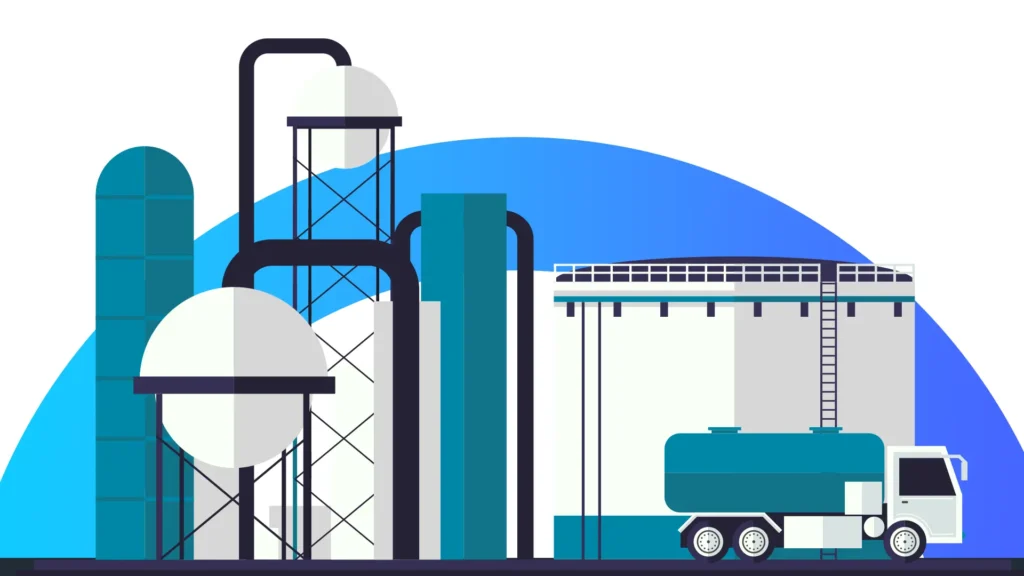Struggling to manage rising fuel costs for your fleet? Discover how a real-time fuel tracking solution can stop waste, improve visibility, and simplify operations.
Introduction
Fuel doesn’t just burn on the road, it burns through budgets too. For fleet managers, that’s a constant headache. Fuel is the second-largest expense after payroll, and yet, most companies still rely on outdated tracking methods. These traditional methods often lead to inefficiencies, inaccuracies, and higher operational costs.
A well-implemented fuel tracking solution offers the visibility and control necessary to manage fuel consumption effectively. In this article, we’ll explore what fuel tracking involves, the challenges fleet managers face, and how the right fuel tracking solution fixes it all.
Understanding fuel tracking

Fuel tracking is more than keeping receipts or checking your tank gauge. It’s the process of measuring, monitoring, and analyzing fuel consumption across your fleet in real-time. This data helps companies control costs, reduce fuel theft, and improve operational efficiency.
But not all fuel tracking systems deliver on this promise. That’s where the right fuel tracking solution can transform your operations.
Why manual tracking fails fleet managers
Many fleets still rely on spreadsheets, receipts, and handwritten logs to track fuel. That system worked decades ago. It doesn’t now. Manual tracking creates more questions than answers. You can’t spot trends. You can’t identify waste. You’re left guessing.
Despite growing awareness of digital fuel tracking’s importance, many fleet managers still struggle with several critical challenges:
1. Delayed insights
By the time you collect and review fuel data, days—or even weeks—have passed. That’s too late. Real-time problems demand real-time answers. Manual tracking slows everything down.
2. Human error
Fuel logs are filled in by people. People forget. People rush. And sometimes, people mix up numbers. These mistakes add up and make your reports unreliable.
3. Fuel theft slips through
When you can’t match fuel purchases with vehicle locations or driver actions, theft becomes invisible. Without alerts, you’ll never know when misuse happens.
4. No central system
Data sits in silos. One team tracks mileage. Another handles receipts. No one sees the big picture. That creates blind spots and miscommunication.
5. No link to behavior
You can’t connect fuel usage to driver habits or vehicle condition manually. That means you miss the chance to coach better habits or schedule maintenance smarter.
6. Time-draining admin work
Someone has to input and check all that data. That’s time they could spend on strategic work. Instead, they chase receipts and fix typos.
7. Inconsistent fuel prices
Fuel prices change daily. Manual methods rarely capture those changes. That makes it hard to forecast fuel spend or spot overpriced stations.
What the best fuel tracking solutions actually offer
The best solutions give you access to clear, actionable insights. Here’s what to look for:
- Real-time fuel data from telematics
- Fuel card integration to match transactions with vehicle location
- Automated alerts for suspicious usage
- Driver behavior tracking to reduce aggressive driving
- Mobile access so you’re never out of the loop
Rather than merely recording transactions, a robust fuel tracking solution provides the tools to act on the information, quickly and confidently.
Meet fintech lorry: Built for fleet managers, not just spreadsheets
Fintech Lorry is a next-gen fuel tracking solution created specifically for fleet-heavy businesses. It combines fuel monitoring, smart analytics, and expense management in a single interface.
No more switching between apps or spreadsheets. Everything lives in one dashboard. Let’s break down what it delivers:
- Real-time visibility into fuel consumption by vehicle and route
- Instant alerts to flag suspicious activity, reducing the risk of theft
- Custom reporting dashboards for tailored business insights
- Integration with telematics and fuel card systems
- Driver behavior analytics to support coaching and accountability
It’s not about giving you more data. It’s about giving you the right data at the right time.
Wrapping up
Fuel tracking is no longer optional. It’s essential for anyone managing a fleet. Without it, you’re guessing. And guessing is expensive.
Fleet managers need a modern fuel tracking solution that is accurate, fast, and built for business impact. Fintech Lorry does just that, without adding complexity to your daily workflow. To learn more, talk to our experts.




